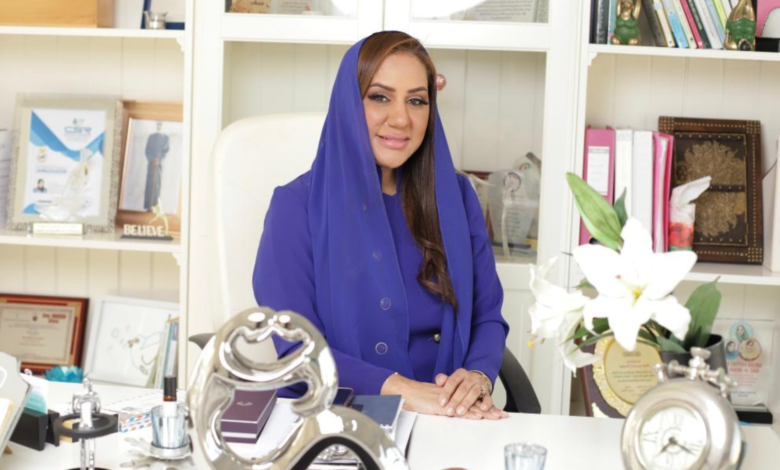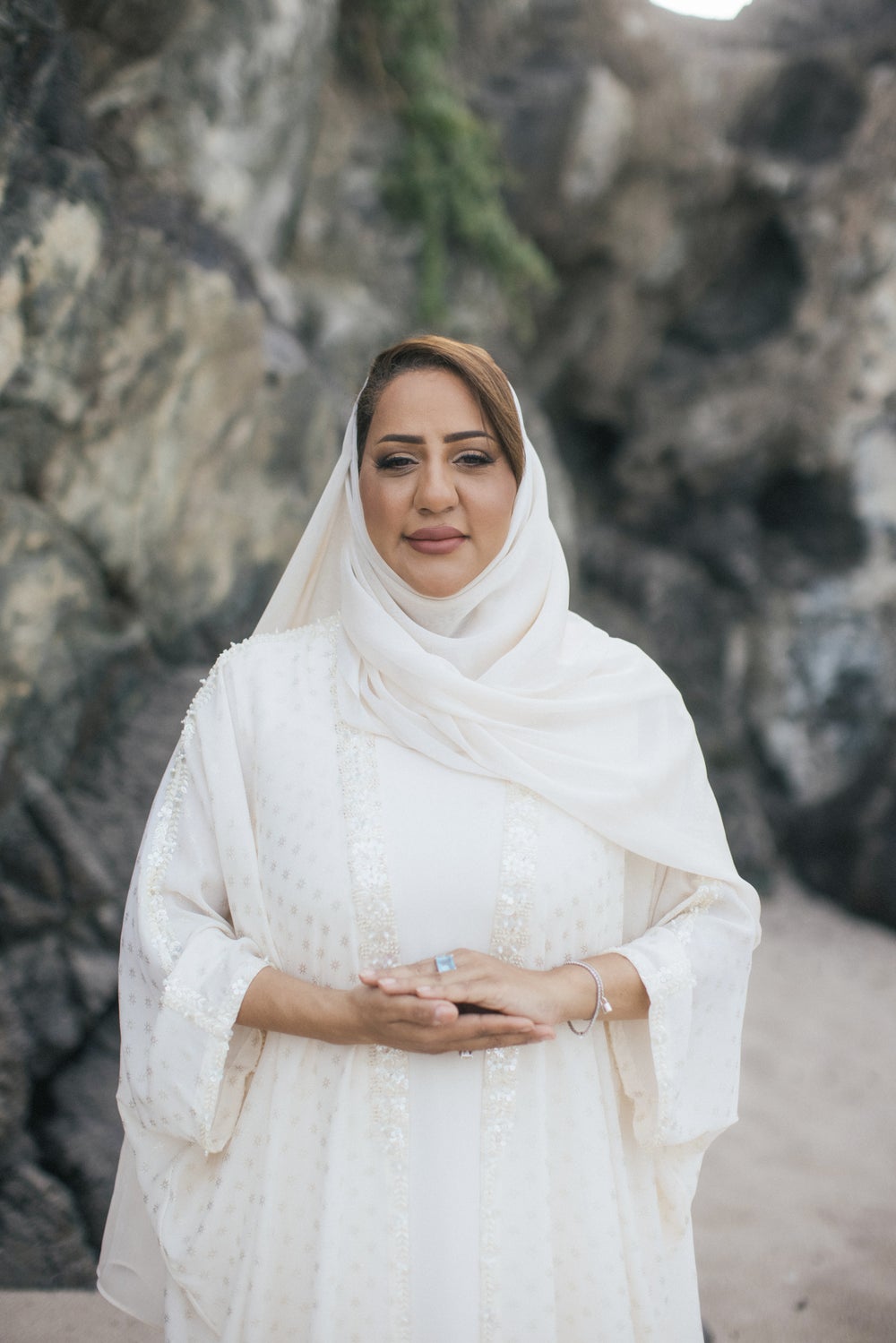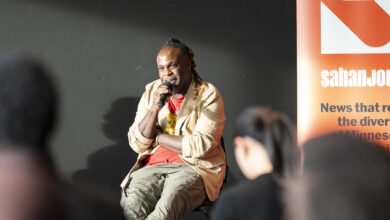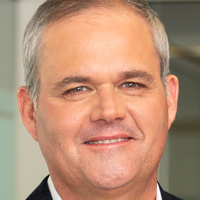Big Goals, Bold Choices: H.H. Sayyida Basma Al Said, Founder, Whispers Of Serenity

You’re reading Entrepreneur Middle East, an international franchise of Entrepreneur Media.
H.H. Sayyida Basma Al Said a member of the Oman royal family, has made it her life’s work to raise awareness of mental health challenges and taboos across the GCC region, and educating people on the importance of having a healthy state of mind. This is why Al Said, who is a mental health clinical counselor, hypnotherapist, and post-traumatic stress disorder (PTSD)- informed trainer, founded Whispers of Serenity, the first private mental health clinic in Oman. She is also the founder of Not Alone, a mental health awareness campaign that was known for providing psychological support during the COVID-19 pandemic through a messaging support line that was available worldwide.
Al Said’s wealth of experience in the field lends credibility to her observations about the state of mental health in the GCC, and her insights on how that pertains particularly to the region’s female executives and entrepreneurs are definitely worth noting. “Many feel compelled to push themselves to their limits before acknowledging any mental strain, fearing that any admission of struggle will be perceived as a sign of weakness,” Al Said says. “There’s a common misconception conflating self-esteem with anger or an aggressive demeanor. Women often feel the need to overcompensate by acting tough or angry to assert their leadership or entrepreneurial capabilities, believing that this display of ‘strength’ is necessary to be taken seriously and to prevent being undermined.”
As such, to avoid mistaking outward toughness or anger with self-esteem, Al Said advises women to work on building their inner confidence, as well as the ability to remain calm and composed. “I strongly believe that a calm demeanor is not only more appealing, but also more effective in leadership and entrepreneurship,” she says. “Women should be encouraged to let their work speak for itself, cultivating self-esteem that’s reflected in their achievements, and how they conduct themselves professionally.”
H.H. Sayyida Basma Al Said, Founder, Whispers Of Serenity. Source: Whispers Of Serenity.
Furthermore, Al Said calls for redefining self-esteem as the ability to be assertive without being aggressive, to command respect without intimidation. Achieving this result, though, will require encouraging more women to speak about mental health difficulties. “Women must recognize their right to acknowledge when they’re not okay,” she says. “In professional spheres, the reluctance to admit to feeling pressured often stems from a concern of being judged through the lens of gender stereotypes. The persistent question of how women balance work and home, seldom directed at men, reflects this bias. The narrative that household responsibilities are exclusively a woman’s domain is outdated and needs to change.”
Related: Big Goals, Bold Choices: Irina Shamilova, Founder And Chief Designer, EIRINE Jewelry House
Al Said thus advises women to recognize and articulate their struggles. “By addressing what they’re experiencing as it happens, women can better manage their responsibilities and maintain their productivity,” she says. “Transparent dialogue about mental health not only fosters personal wellbeing, but also enhances professional efficacy, creating a more supportive environment for all.”
In addition, al said believes that a top-down approach is crucial for addressing mental health effectively, and thus she encourages regional leaders to prioritize well-being as a core value. “Currently, there’s a tendency at conferences and leadership forums to prioritize discussions about business empires and economic ventures, often at the expense of wellbeing topics,” she says. “This oversight is significant, because a foundation of good mental health is critical for the sustainability of any business or empire.”
As such, for a successful mental health system on a national level, Al Said suggests an integrated approach that includes government initiatives, followed by the private sector’s involvement, and extending to educational institutions and healthcare facilities. “Mental health work is never done; it requires continuous effort and adaptation to address new challenges as they arise in our rapidly changing world,” she notes. “Leaders must remain vigilant and proactive in fostering environments that support mental health.”
When it comes to mental health challenges in the Middle East, Al Said, who’s considered to be one of the pioneers of mental health awareness in Oman and across the GCC, believes that they aren’t unique to the region. “I’ve learned that mental health issues transcend borders and cultures, becoming an international concern,” Al Said says. “There is no country untouched by the taboos associated with mental health, which are often rooted in deeply personal issues.”
 H.H. Sayyida Basma Al Said, Founder, Whispers Of Serenity. Source: Whispers Of Serenity.
H.H. Sayyida Basma Al Said, Founder, Whispers Of Serenity. Source: Whispers Of Serenity.
Globally, Al Said continues, the perspective on mental health is evolving into a widely discussed topic, attracting dialogue even from those previously uninformed about the subject. “The universality of mental health challenges calls for a reevaluation of our questions and assumptions, emphasizing that this is not an isolated regional issue but a shared global battle,” she concludes.
Insider Insights: H.H. Sayyida Basma Al Said’s advice for improving your mental health
Enhance self-awareness “Take the time to reflect on your current state of mind. Are there noticeable changes in your mood, enthusiasm, or passion for your work and personal life? Recognizing these signs is the first step towards addressing them.”
Identify triggers “Keep a journal to note down moments when you feel stressed or unhappy. Understanding what triggers negative emotions can help you manage or avoid these situations.”
Practice open communication “Before seeking professional help, it might be beneficial to speak to someone you trust- a friend or family member who listens well and can offer support. If speaking to friends or family is not enough, do not hesitate to seek help from a therapist, psychologist, or life coach. Choose a professional with a proven track record and experience relevant to your concerns.”



